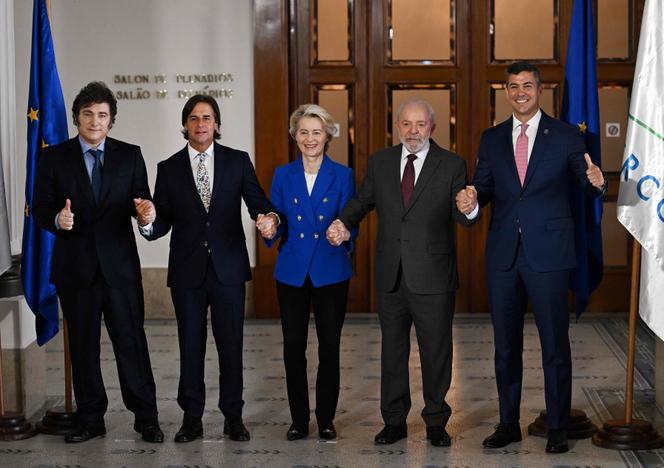


Ever since she flew to Montevideo, Uruguay, on Thursday, December 5, it seemed a foregone conclusion that Ursula von der Leyen would use the Mercosur summit (Argentina, Bolivia, Brazil, Uruguay and Paraguay) to conclude the agreement between the European Union (EU) and the countries of this South American common market. By Friday, December 6, the Commission president announced that after 25 years of negotiations, since 1999, the two parties had finally reached a deal.
This does not mean trade between these economic areas will be liberalized tomorrow. Now that the Commission, which negotiates on behalf of the 27 member states, and Mercosur have reached an agreement, it must be approved by the member states and the European Parliament before it can be ratified. This could take months, or even years, given the complexity of the deal.
On Friday, von der Leyen said the deal would "bring meaningful benefits to consumers and businesses, on both sides." It should remove tariffs on around 90% of goods exported to the region, today taxed for cars at 35%, chemicals up to 18%, pharmaceuticals up to 14% and leather shoes at 35%. This "is not just an economic opportunity, it's a political necessity," she added, as the EU is finding it increasingly difficult to conclude free trade treaties in an increasingly protectionist world.
Between the election of Donald Trump, who has promised to overtax European imports, and China which is closing in on foreign products while being aggressive outside its borders where it exports its industrial overcapacity, Europe does indeed have plenty to worry about. All the more so as Beijing and Washington are working to extend their zone of influence beyond their borders. "Strong winds are blowing in the opposite direction toward isolation and fragmentation," insisted von der Leyen.
German Chancellor Olaf Scholz expressed his satisfaction in a post on X that an important step had been taken toward "a free market for more than 700 million people along with more growth and competitiveness." Germany, which is in recession, had been lobbying for this favorable conclusion to the negotiations for months; it needs to offer new outlets to its crisis-hit industry.
Spanish Prime Minister, Pedro Sanchez, whose country has close ties with South America, hailed the agreement as "historic," and said that it would "make us all more prosperous and resilient."
You have 63.42% of this article left to read. The rest is for subscribers only.
